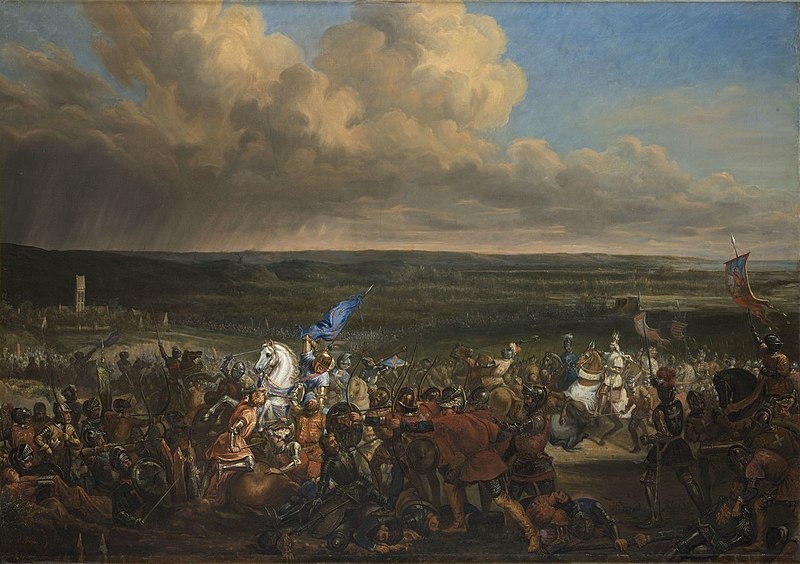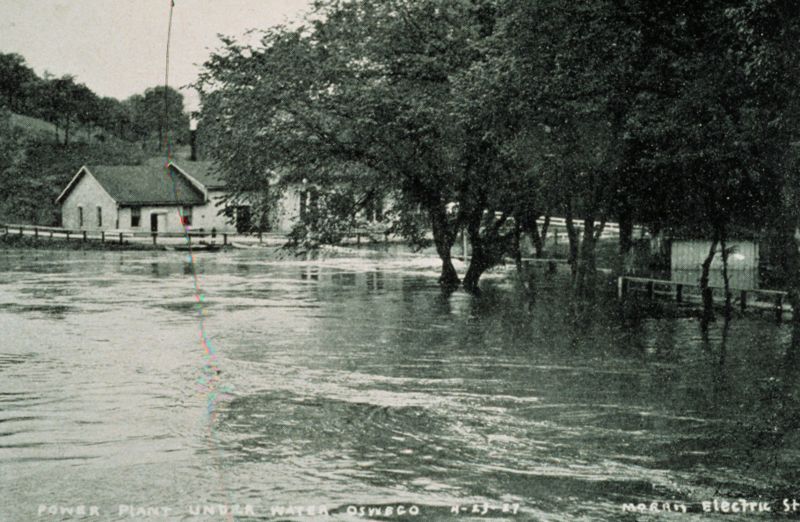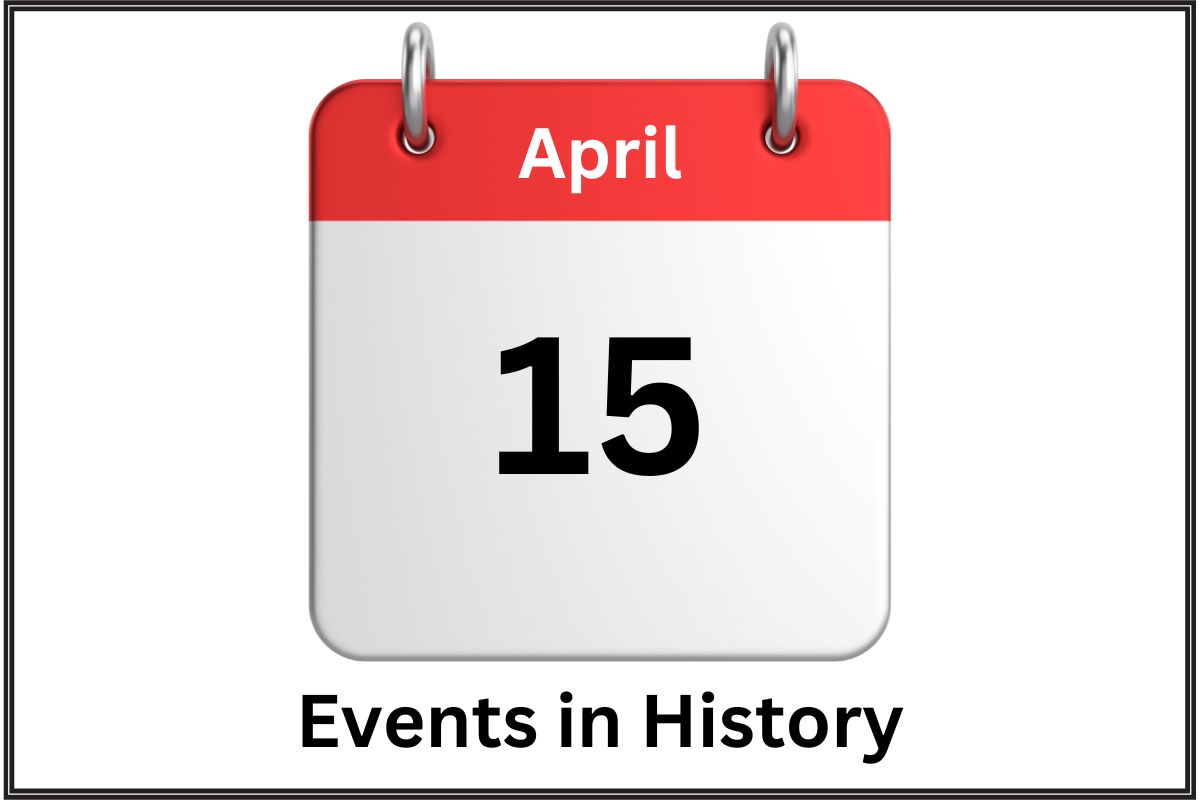April 15th stands out in the annals of history, marked by a series of transformative events that have shaped societies and influenced the global landscape.
From pivotal battles and groundbreaking innovations to tragic disasters and significant political milestones, this date has witnessed occurrences that resonate through time. In this article, we explore twenty of these events, providing insights into their historical contexts and lasting impacts.
Each event is a testament to the complexity of human endeavors and the profound ways in which individual days can become watershed moments in history. Join us as we travel through time, from medieval battlefields to modern political movements, examining the events that have left an indelible mark on April 15th.
April 15th Events in History
1450 – The Battle of Formigny: Toward the end of the Hundred Years’ War, French troops defeat English forces, reclaiming Normandy
This battle was a pivotal moment in the Hundred Years’ War between France and England. Fought near the village of Formigny in Normandy, the French forces, led by Charles VII, decisively defeated the English army, which was commanded by Sir Thomas Kyriell.
Also Read: April 14 – On this Day in History
The victory was significant because it marked the beginning of the end of English dominance in Northern France. The French used innovative artillery techniques that proved decisive, setting the stage for the final expulsion of the English from Normandy, thus altering the course of the war.

1638 – Religious dissident Anne Hutchinson is expelled from the Massachusetts Bay Colony for heresy
Anne Hutchinson, a Puritan spiritual adviser, gained notoriety in the Massachusetts Bay Colony for her outspoken views and challenges to the orthodox Puritan clergy.
She was tried and eventually expelled from the colony for heresy and sedition after she claimed to receive direct personal revelations from God, which undermined the established church and its leaders.
Her trial and subsequent expulsion highlighted the religious intolerance of the time and the struggles for religious freedom in early Colonial America.
1715 – The Pocotaligo Massacre triggers the start of the Yamasee War in colonial South Carolina
The Yamasee War was a conflict between British settlers of colonial South Carolina and various Native American tribes, including the Yamasee. The war began with the Pocotaligo Massacre, where the Yamasee and other tribes coordinated attacks that killed several hundred colonists.
Also Read: April 16th Events in History
This conflict was driven by the settlers’ abuses, such as unfair trading practices and encroachments on Native American lands. The war significantly altered the balance of power between Native Americans and the European settlers in the region.
1755 – Samuel Johnson publishes his “A Dictionary of the English Language” in London
Samuel Johnson, an English writer and lexicographer, published “A Dictionary of the English Language” on April 15, 1755, in London. It was among the first dictionaries that comprehensively documented the English language.
Johnson’s work was notable for its detailed definitions, as well as the quotes from literary sources to illustrate word usage, setting a standard for later dictionaries. This monumental work significantly influenced English literature and the development of the English language.
1783 – Preliminary articles of peace ending the American Revolutionary War (Treaty of Paris) are ratified
The Preliminary Articles of Peace were ratified on April 15, 1783, effectively ending the American Revolutionary War. These articles formed the basis for the Treaty of Paris, which was later signed in September of the same year.
The treaty acknowledged the United States of America as a free, sovereign, and independent state, marking the end of British rule over the American colonies. This ratification began the process of establishing peace and setting the boundaries of the new nation.

1817 – The first American school for the deaf is opened in Hartford, Connecticut
The American School for the Deaf was opened on April 15, 1817, in Hartford, Connecticut. It was the first school of its kind in the United States. Thomas Hopkins Gallaudet and Laurent Clerc, who was a deaf educator from France, founded the school to provide education to the deaf and hard-of-hearing in a structured academic setting.
This institution was groundbreaking in its approach to special education and laid the foundation for deaf education in America, promoting the use of American Sign Language alongside English.
1861 – President Abraham Lincoln calls for 75,000 Volunteers to quell the insurrection that started the American Civil War
In response to the attack on Fort Sumter and the ensuing secession of Southern states, President Abraham Lincoln issued a proclamation on April 15, 1861, calling for 75,000 volunteers to suppress the rebellion.
This call marked the official start of the American Civil War, as it prompted four more states to secede from the Union in opposition to what they perceived as an aggressive act. Lincoln’s call for volunteers was a decisive moment that escalated the conflict into a full-scale war.
1865 – President Abraham Lincoln dies after being shot the previous evening by actor John Wilkes Booth. Vice President Andrew Johnson assumes the presidency
President Abraham Lincoln died on April 15, 1865, after being shot by John Wilkes Booth at Ford’s Theatre in Washington, D.C., the previous evening. His death marked the first assassination of a U.S. president and had profound effects on the nation.
Lincoln’s assassination occurred just days after the effective end of the Civil War and plunged the country into deep mourning. It also had significant implications for the tumultuous Reconstruction era that followed
1892 – The General Electric Company is formed through the merger of the Thomson-Houston Electric Company and the Edison General Electric Company
The General Electric Company was formed on April 15, 1892, by the merger of the Thomson-Houston Electric Company and Edison General Electric Company. Thomas Edison was one of the founders, and the company quickly became a major industrial force in the United States.
GE was instrumental in advancing the electrification of the United States, and over the decades, it expanded into numerous sectors, including lighting, transportation, industrial products, and energy solutions.
1912 – The British passenger liner RMS Titanic sinks in the North Atlantic at 2:20 a.m., two and a half hours after hitting an iceberg
The RMS Titanic, a British passenger liner, sank in the North Atlantic Ocean in the early hours of April 15, 1912, after striking an iceberg during its maiden voyage from Southampton to New York City.
The tragedy resulted in the deaths of more than 1,500 people, making it one of the deadliest maritime disasters in modern history. The sinking of the Titanic led to significant changes in maritime safety regulations, including improved lifeboat requirements and ice patrol services.
1923 – Insulin becomes generally available for use by people with diabetes
On April 15, 1923, insulin became widely available for people with diabetes. This followed its discovery in 1921 by Sir Frederick Banting and Charles Best, which revolutionized the treatment of diabetes mellitus.
Insulin’s introduction as a therapeutic drug significantly reduced the mortality rate associated with diabetes and improved the quality of life for millions of people worldwide.
The mass production and distribution of insulin marked a major milestone in medical history, providing a life-saving treatment for a previously unmanageable disease.

1927 – The Great Mississippi Flood of 1927, the most destructive river flood in U.S. history, begins
This catastrophic flood, which began in 1927, is considered one of the greatest natural disasters in the history of the United States in terms of scale and devastation.
Triggered by exceptionally heavy rains, the floodwaters overwhelmed the levee system along the Mississippi River, causing widespread flooding across several states including Illinois, Missouri, Kentucky, Tennessee, Arkansas, Mississippi, and Louisiana.
The flood affected millions of acres of land and displaced hundreds of thousands of people. This event led to significant changes in flood control policies and measures in the United States.
1941 – In World War II, British troops enter Sarajevo and Yugoslav Partisans liberate Belgrade
On April 15, 1941, during World War II, British troops entered Sarajevo, and Yugoslav Partisans, led by Josip Broz Tito, liberated Belgrade. These military actions were part of the broader efforts to resist Axis forces in Yugoslavia.
The Partisans’ activities in particular were significant as they marked the beginning of a successful and sustained anti-fascist resistance movement in the region, which eventually played a key role in the liberation of Yugoslavia from Nazi occupation.
1947 – Jackie Robinson breaks Major League Baseball’s color barrier by debuting with the Brooklyn Dodgers
Jackie Robinson made his official Major League Baseball debut for the Brooklyn Dodgers on April 15, 1947, breaking the sport’s color barrier as the first African American to play in MLB in the modern era. His first game at Ebbets Field marked a historic moment in both sports and the Civil Rights Movement.
Robinson faced significant racial discrimination and adversity, but his resilience and exceptional talent paved the way for other African American athletes and contributed to the gradual integration of other American sports.
1955 – Ray Kroc opens the first McDonald’s franchised under his partnership with the McDonald brothers in Des Plaines, Illinois
Ray Kroc opened the first McDonald’s franchise in Des Plaines, Illinois, on April 15, 1955. Kroc, who was a milkshake machine salesman before he joined McDonald’s, saw the potential in the McDonald brothers’ restaurant concept in California, which emphasized speed, consistency, and affordability.
His opening of the franchise marked the start of what would become a global fast-food empire, profoundly influencing the food industry and American culture. McDonald’s innovative business model and focus on franchise operations helped redefine the fast-food sector and spurred the growth of countless other franchise-based businesses.
1989 – Upon Hu Yaobang’s death, a pro-democracy rally starts in Tiananmen Square in Beijing, China, leading to the Tiananmen Square Massacre
The death of Hu Yaobang, a reformist Communist Party leader who had been ousted by more conservative factions, sparked the Tiananmen Square protests in Beijing on April 15, 1989. Yaobang’s death catalyzed widespread public mourning, which quickly escalated into a pro-democracy movement.
Tens of thousands of students gathered in Tiananmen Square calling for political reform, greater personal freedoms, and freedom of speech. The protests lasted several weeks and were brutally suppressed by the Chinese government in June 1989, resulting in a significant and tragic loss of life.
1994 – Representatives of 124 countries sign the Marrakesh Agreement, establishing the World Trade Organization
On April 15, 1994, representatives from 124 countries signed the Marrakesh Agreement, formally establishing the World Trade Organization (WTO). The WTO succeeded the General Agreement on Tariffs and Trade (GATT), which had been established in the wake of World War II to regulate international trade.
The formation of the WTO introduced a more structured environment for international trade negotiations and a system to resolve trade disputes. It plays a critical role in promoting and enforcing open trade policies globally.
2013 – Two bombs explode near the finish line at the Boston Marathon, killing three people and injuring several hundred
On April 15, 2013, during the Boston Marathon, two homemade bombs exploded near the finish line, killing three people and injuring several hundred others, including 17 who lost limbs.
The attack, carried out by brothers Tamerlan and Dzhokhar Tsarnaev, shocked the nation and led to a massive law enforcement response to capture those responsible.
The events triggered a nationwide discussion on domestic terrorism, security, and surveillance. The community’s resilient response, summed up in the phrase “Boston Strong,” highlighted the city’s unity and strength in the face of tragedy.
2014 – More than 200 Nigerian schoolgirls are kidnapped by Boko Haram in the town of Chibok in Borno State
More than 200 schoolgirls were kidnapped by the Islamist militant group Boko Haram on April 15, 2014, from their school in Chibok, Borno State, Nigeria. The mass abduction drew international attention and led to widespread condemnation, sparking the global #BringBackOurGirls campaign.
This incident highlighted the ongoing issues in Nigeria and surrounding regions with Boko Haram, whose insurgency has caused immense violence and instability, focusing world attention on the fight against extremist groups and the importance of education for girls.
2019 – The cathedral of Notre-Dame de Paris in France suffers a catastrophic fire
A major fire engulfed the iconic Notre-Dame Cathedral in Paris on April 15, 2019, causing significant damage to the structure, including the collapse of its spire and much of the roof. The cathedral, a masterpiece of French Gothic architecture and a symbol of French cultural heritage, was undergoing renovation at the time.
The fire prompted a global outpouring of grief and solidarity, with pledges of over a billion euros for the cathedral’s restoration. The event underscored the challenges of preserving historical architecture and the importance of cultural heritage.
